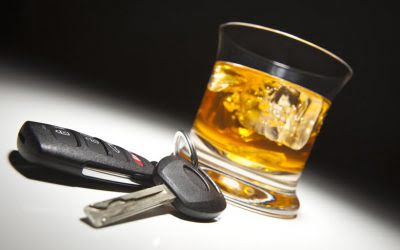A basic fear of recovery is that the individual is not capable of recovery. The belief is that recovery requires some special strength or willpower that the individual does not possess. Past relapses are taken as proof that the individual does not have what it takes to recover [9]. Cognitive therapy helps clients see that recovery is based on coping skills and not willpower. By the time most individuals seek help, they have already tried to quit on their own and they are looking for a better solution. This article offers a practical approach to relapse prevention that works well in both individual and group therapy.
What is the Transtheoretical Model of Health Behavior Change?
- This is true for stimulant prescriptions like Adderall or benzodiazepines.
- Participants are paired with sponsors who guide them through the steps, offering personal support and accountability.
- These support groups can help reduce the sense of shame and isolation that can lead to relapse.
- However, they are also still acutely aware of the benefits they perceive from alcohol or drug addiction.
- The alcohol addiction cycle is typically described in three stages, each corresponding to different behaviors and physiological responses involved in the progression of addiction.
Although it may be clear to friends and family that the substance abuse has gotten out of hand, the addict at this point often feels that their usage is totally under control. Even for people who initiate and sustain recovery, it can take many recovery http://migsovet.ru/nasilie-v-seme.html attempts over the course of several years 9+ years. Once individuals make that initial change and establish a period of early remission (i.e., 3 months), how well they can maintain and build on that change is key – during the “maintenance” stage.

Stage 2: Early Abstinence
At this juncture, the substance user is contemplating a significant change, yet might wrestle with doubts about proceeding. The model suggests that individuals go through a series of stages when making changes in their behavior. These stages are not linear, and individuals move back and forth between them. In the past, there were fewer self-help and treatment program options and less access to resources.

EP10: Miracle Sobriety Story From Addiction & Jail to Counselor
Social norms and cultural contexts also have a significant impact on alcohol use. For younger immigrants, joining social networks that promote alcohol use and possibly not having parental support can increase the risk of alcohol misuse. A substance use disorder can be considered mild, moderate, or severe based on the number of symptoms a person exhibits within a 12-month period. While misconceptions surrounding substance use may lead you to believe that the condition is caused by a person’s behavior or lack of willpower, it’s important to keep in mind that that’s untrue. When you address mental health and addiction, you open a world of possibilities. You’ll have the tools to manage your emotions, build healthy relationships, and thrive.
Drugs, Brains, and Behavior: The Science of Addiction
During this contemplative stage, the support received from friends, family, or addiction specialists is crucial. A safe and empathetic environment, where individuals can freely share their thoughts and feelings, significantly aids in navigating this complex phase. This comorbidity underscores the intricate relationship between psychological well-being and alcohol dependency. Disorders https://www.nikeairmax.us/5-key-takeaways-on-the-road-to-dominating-3/ such as anxiety, depression, and stress can precede or result from AUD, creating a cyclically detrimental impact on an individual’s mental health. Signs and symptoms of substance use vary widely from person to person and depend on the substance, length and severity of use, and an individual’s personality. Family and couples therapy can be incredibly beneficial in the recovery process.
While it may be tempting to rush into recovery at this point, experts actually caution against this sort of sudden action. In their book “Changing for Good,” psychologists James Prochaska, John Norcross and Carlo DiClemente warn that those who “cut short the preparation stage” are more likely to fail. Here, the addict will begin to take action against their addiction and towards their recovery.
However, many need admission to a hospital or a residential treatment center. A person’s environment includes various influences, such as family, friends, and economic status. When a person experiences withdrawal, the reward system in the basal ganglia shuts off. 3) Clients feel they are not learning anything new at self-help meetings and begin to go less frequently. Clients need to understand that one of the benefits of going to meetings is to be reminded of what the “voice of addiction” sounds like, because it is easy to forget.

A prominent model of behavioral change that cuts across theories – The Transtheoretical Stages of Change Model – serves as a useful way to understand this change http://www.medsite.com.ua/medicine_news_418.html process. The different stages of change necessitate different recovery strategies. Unfortunately, relapse is a common part of drug or alcohol addiction recovery.
